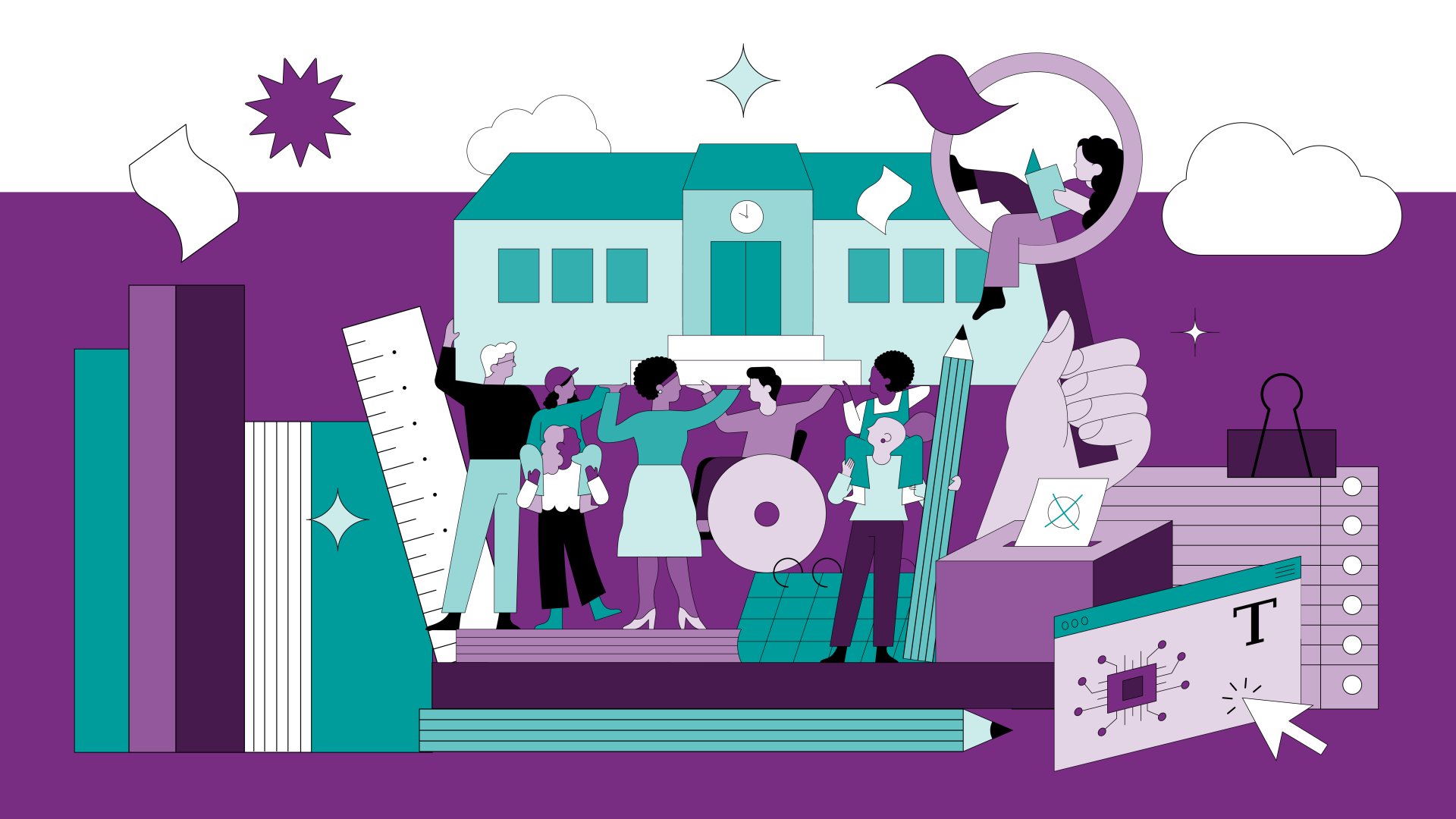Teachers Concerned About the Competencies of the ChatGPT Generation
Between AI skepticism, the desire for more democratic education, and growing workload: The current German School Barometer by the Robert Bosch Stiftung shows what moves teachers – and where they urgently see need for change. An overview of the key results.
The current German School Barometer shows which challenges teachers are currently struggling with most, where they see progress, and what support they desire. Since 2019, the Robert Bosch Stiftung has regularly surveyed teachers to identify developments in the education system early on. In the current survey, published on June 25, the use of artificial intelligence in everyday school life and the importance of democracy education were also the focus for the first time. Read the central findings here.
Teachers Between Pressure and Calling
The greatest professional challenge for teachers currently is student behavior. This topic already ranked first last year – now the proportion of teachers who name it as a central problem has increased significantly again: from 35 percent to 42 percent. At secondary, intermediate and comprehensive schools, this affects every second teacher (52 percent). In second place among the most frequently mentioned challenges are the high workload and increasing time shortage – a problem that now affects 34 percent of teachers, six percentage points more than in the previous year. The teacher shortage, which was long considered a central problem, is currently named as the biggest difficulty by only 20 percent of respondents.
Despite the high burdens in everyday school life, a large majority (84 percent) are surprisingly satisfied with their professional situation. 70 percent would choose the teaching profession again. Approval of their own school is even higher – 90 percent of respondents say they enjoy working there.
Artificial Intelligence in the Classroom: Between Skepticism and Potential
The use of AI in teaching is viewed with mixed feelings by many teachers. For many, concern prevails when students use AI tools in the learning process – even among those who have already gathered their own experiences with AI. In the survey, teachers were asked to assess how the use of AI affects various competencies. The result: More than 60 percent of respondents see rather negative effects, especially regarding social and communicative skills and critical thinking. But there is another side: Many teachers do recognize opportunities – especially when AI is specifically used for individual support. 57 percent see a clear advantage for learning in this. "ChatGPT and comparable applications have long been part of young people's world and can no longer be banned from everyday school life," says Dr. Dagmar Wolf, Senior Vice President Education at the Robert Bosch Stiftung. "Teachers should gain their own experience with these technologies. In addition, systematic training on the use of artificial intelligence in teaching is essential. Only in this way can students be enabled to deal with it in a reflective and responsible manner."
"When used correctly, AI can relieve teachers and give them more freedom for pedagogical tasks."
Democracy Education Desired, But Often Difficult to Implement
More than half of teachers believe that more should be done for democracy education at their school. Of those who want stronger engagement in this area, 77 percent see the lack of teaching time as the biggest obstacle. About one in five teachers expresses concern that democracy topics could be neglected in class because many are uncertain about handling the neutrality requirement. Additional challenges are evident in eastern German states. There, 38 percent of teachers report little interest in democracy education among colleagues. In addition, 29 percent fear that discussions about democratic topics could lead to conflicts among students. "Democracy education does not only take place in politics class. Schools must develop into democratic, participatory and inclusive places that are shaped jointly by learners and teachers," demands Wolf. "For this, we need real change – structurally, personally and culturally. An important step is the consistent implementation of the announced investment program for education and Digital Pact 2.0 by the federal and state governments."
How Do Teachers View School Inclusion?
The majority of teachers continue to view school inclusion critically. 71 percent believe that inclusion does not improve teaching or does not improve it at all – a slight decrease compared to the previous year, when 74 percent held this view. More than half of teachers (55 percent) even believe that increasing diversity in classrooms impairs the quality of teaching. For the first time, the survey also considered the so-called "growth mindset" of teachers. This refers to the belief that abilities and intelligence are not fixed but can be developed through learning and effort. The results show: Teachers with a pronounced growth mindset are significantly more open to inclusion. However, this only applies to 13 percent of respondents. 12 percent represent a so-called "fixed mindset," the view that talents are largely innate and unchangeable. The vast majority – 75 percent – cannot be clearly assigned to either pole.
Learn more about the German School Barometer and read previous editions.

